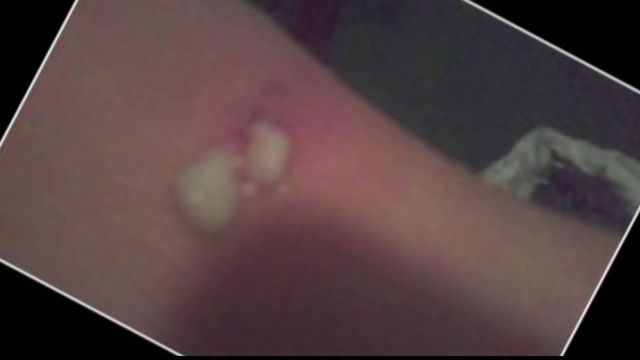MRSA infections strike children
Crystal Amos became concerned in August when her son, Jaden, 2, developed a sore on his arm.
Posted — UpdatedThe illness is infecting otherwise healthy people, especially children.
Crystal Amos became concerned in August when her son, Jaden, 2, developed a sore on his arm.
“It started out on his arm and then it got real red and pink. I have pictures of it and it like gooshed out,” she said.
Cleaning the wound didn't help. Then, Amos said, the same type of sore spread to Jaden’s leg and buttocks.
“He was complaining every time he moved, where the sore was, that it hurts,” she said.
“The staph bacteria that live on our skin that have become resistant to antibiotics have exploded recently,” WakeMed pediatrician Dr. Mark Piehl said.
Piehl said a study at WakeMed showed 70 to 80 percent of previously healthy children with a skin infection have community-acquired MRSA.
Many people have the bacteria on their skin but never have a problem, Piehl said.
“A small percentage, for whatever reason, will then get an infection if they have a break in the skin,” he said.
Standard antibiotics won't work against the organism. Jaden needed a few days in the hospital with stronger IV-administered antibiotics and surgery.
Earlier diagnosis means easier treatment.
“When a child has a skin infection, something that's red, painful and growing, it needs to be evaluated, and MRSA needs to be considered,” Piehl said.
Since Jaden had the infection once, he's more prone to it in the future, so his mother does her best to keep his skin clean and constantly look for any suspicious wounds.
To minimize the risk of a MRSA infection, the U.S. Centers for Disease Control and Prevention recommends basic hygiene, such as frequently washing hands and not sharing towels or other items, when an infection is present in the household or a day care setting.
• Credits
Copyright 2024 by Capitol Broadcasting Company. All rights reserved. This material may not be published, broadcast, rewritten or redistributed.





